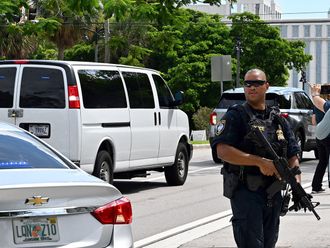Pomuch: Eighty-three-year-old Maya Indian Cenorio Colli gazed lovingly at his wife's long brown hair and recalled how carefully she combed it when she was still alive.
Then he went back to cleaning her skull and every bone she left behind.
Grieving Maya Indians in a sweltering village deep in the limestone flatlands of Mexico's Yucatan peninsula painstakingly cleaned the remains of their late loved ones on Monday during a unique annual family reunion with the dead.
In a tradition dating back centuries, families in Pomuch exhume their dead after three years in the grave and transfer their dried bones and skulls often with hair attached to wooden crates on permanent display in open funeral niches.
Bright
Every subsequent year in a two-day ritual preceding the November 1 and November 2 Day of the Dead festival, families gather at the brightly painted tombs to replace the boxes' embroidered cloth linings and give the remains themselves a spruce up.
The festival brings back floods of painful memories for mourning kin struggling with the loss of life companions.
"I was talking to her," Colli, a widow of nine years, recalled as he lifted his dead wife Concepcion's brittle pelvis from a large pile of bones and dusted it off with a cloth. "She lowered her head and that was it."
But the retired farm hand said he took solace from knowing she was at peace. "I feel happy because she died happy."
According to Mayan beliefs, death is a stage in life in which the deceased evolve into higher, more spiritual beings.











